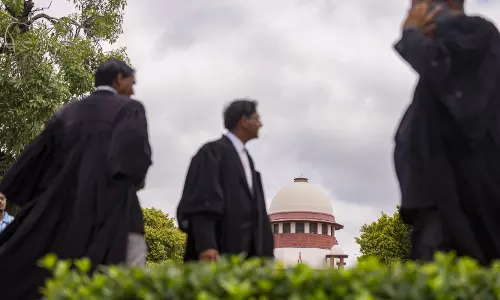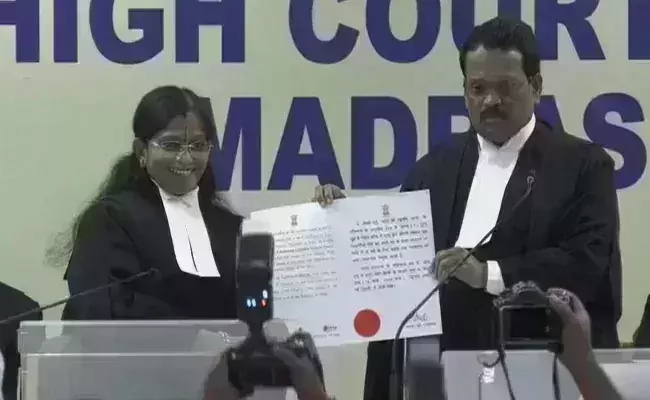
When Victoria Gowri was chosen
text_fieldsThe Supreme Court recently became the forum for a rare drama in the history of Indian judiciary. Ultimately, it also caused a dent in the credibility of the top court. Adv. Victoria Gowri's oath-taking as an Additional Judge of the Madras High Court was completed in Chennai before the hearing on the petition against her appointment in the Supreme Court concluded. This has made a mockery of the judicial process. The credibility of the Supreme Court would have gained a little more dignity if it had been directed to postpone the appointment in the context of accepting the petition. Indeed, this controversy has led to some critical questions being raised about the criteria for selecting judges and the process of appointment. The question of whether the current collegium is the best model to preserve the independence and impartiality of the judiciary has extended beyond the legal sphere. Moreover, the incident also served to highlight the weaknesses and lack of transparency of the current systems.
Also read: SC says raising new Madras HC judge's hate speech antecedents in 'stretching it too much'
The criticism against Adv Gowri's appointment had emerged strongly as soon as news came out that the Madras High Court's recommendation to appoint Adv. Victoria Gowri as a judge was accepted and sent to the Centre. She is the general secretary of the women's wing of the ruling BJP party. She is also infamous for making hateful remarks against Muslims and Christians on various occasions. All of them are as clear as day and open in the public domain. Yet it is surprising that none of them came under the notice of the collegium of the highest law enforcers including the Chief Justice and the report of the central government. Even after the Supreme Court verdict dismissing the petition against Gowri, it is unclear whether the collegium of the Supreme Court missed this or ignored it. Accepting the plea, Chief Justice D.Y. Chandrachud said, "after the acceptance of the recommendation, there have been some developments that require our attention". But while dismissing the plea, Justice Khanna stated that eligibility and suitability are different. He also said there was no reason to presume that the collegium would be ignorant of Gowri's background. The inconsistency between these two statements is not lost on the public. Such confusing statements by those most responsible disappoint those who raise legitimate concerns about the appointment of judges. It also reinforces the perception that the judiciary is unaccountable to the public.
In a democratic society, an independent judiciary is an essential pillar to interpret laws and protect the rights and liberties of citizens. This incident points to the need for a more transparent and accountable process for selecting judges. At present, many High Courts, including that of Kerala, are increasingly showing a trend of inducting as judges those who have played roles in the affiliated bodies of the ruling parties, and who have declared solidarity with them up to the apex court. Meanwhile, the Centre has been refusing to accept eminent legal experts like Adv. John Sathyan for a year, citing an online article critical of Prime Minister Narendra Modi shared on social media despite the collegium's recommendation. Even though the Supreme Court itself has reprimanded the Centre several times against this approach, there has been no change in the situation. There is no doubt that this is a trend that is undermining the very foundations of the judiciary.
Also read: 'Not entertaining', SC refuses plea challenging Victoria Gowri's appointment as Madras HC judge
When public confidence in the judiciary is lost, its capacity to impartially enforce justice is undermined. At a time when the Supreme Court is strongly being criticised for failing to bring justice in politically crucial cases, it raises concern that the courts of the country are becoming a haven for those who are not firm in their commitment to justice and the Constitution and those who want to stay close to people in power. The primary duty of the Supreme Court is to ensure that this does not happen and to convince the people. Before the approval of appointment of judges, their antecedent should be made known to the public and an opportunity afforded for people to raise their concerns. If the Supreme Court comes forward to use this opportunity to clean up the process of appointment of judges and take advantage of this crisis in credibility, it will make a good start of a most positive transformation in India.























